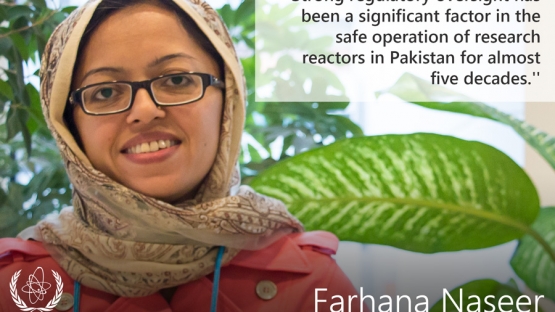Operators should ensure full utilization of research reactors through proper strategic planning, integrate IAEA guidance on safety and security into their operations and make increased use of networking to learn from their peers. These were some of the conclusions of the International Conference on Research Reactors: Safe Management and Effective Utilization, which ended in Vienna today. Over 300 participants from 56 countries and three international organizations took part in the week-long event.
Participants called on the IAEA to continue its support to Member States in planning and building new research reactors, the production and supply of radioisotopes and to provide assistance in the development of research reactor decommissioning plans. They also requested the IAEA to develop further guidance on the security of research reactors in various areas. Click here to read the full Conclusions and Recommendations.
Safe management and effective utilization
To ensure the safe management and effective utilization of research reactors, key conditions must exist. They must be strategically planned for, actively managed, adequately financed and preemptively promoted. For long-term sustainability, Member States must identify present and potential future capabilities for their research reactor programmes. These were among the issues addressed during the conference.
In his closing remarks, “issues and challenges remain” stated Juan Carlos Lentijo, IAEA Deputy Director General and Head of the Department of Nuclear Safety and Security. Particularly in the “development of low enriched uranium fuel for high-performance research reactors; completion of safety reassessments in light of the Fukushima-Daiichi accident and implementation of needed improvements; aging of many research reactors, with the potential impact on safety and reliability and supply of important medical isotopes; and lack of planning for decommissioning in many cases.” Mr. Lentijo said.
The discussion at the Conference has clearly demonstrated that Member States have continued to improve the safety of their research reactors, added Amgad Shokr, Head of the Research Reactor Safety Section at the IAEA. “Delegates have acknowledged the progress by the IAEA in contributing to the improvement of the safety of their research reactors, including by supporting the application of the Code of Conduct on the Safety of Research Reactors, the development of Safety Standards and the support provided in their application, as well as the conducting of safety peer-reviews,” he said. Click here to read the views and takeaways of the conference participants
Research reactors fulfil diverse needs, including medical and industrial isotope production, elemental analysis, education and training, scientific research, and technology development (this includes support for existing and advanced nuclear power technologies).The IAEA continues to pledge its support and assistance to Member States in developing and sustaining safe and secure practices and viable utilization of their research reactors in order to survive the present challenges.



